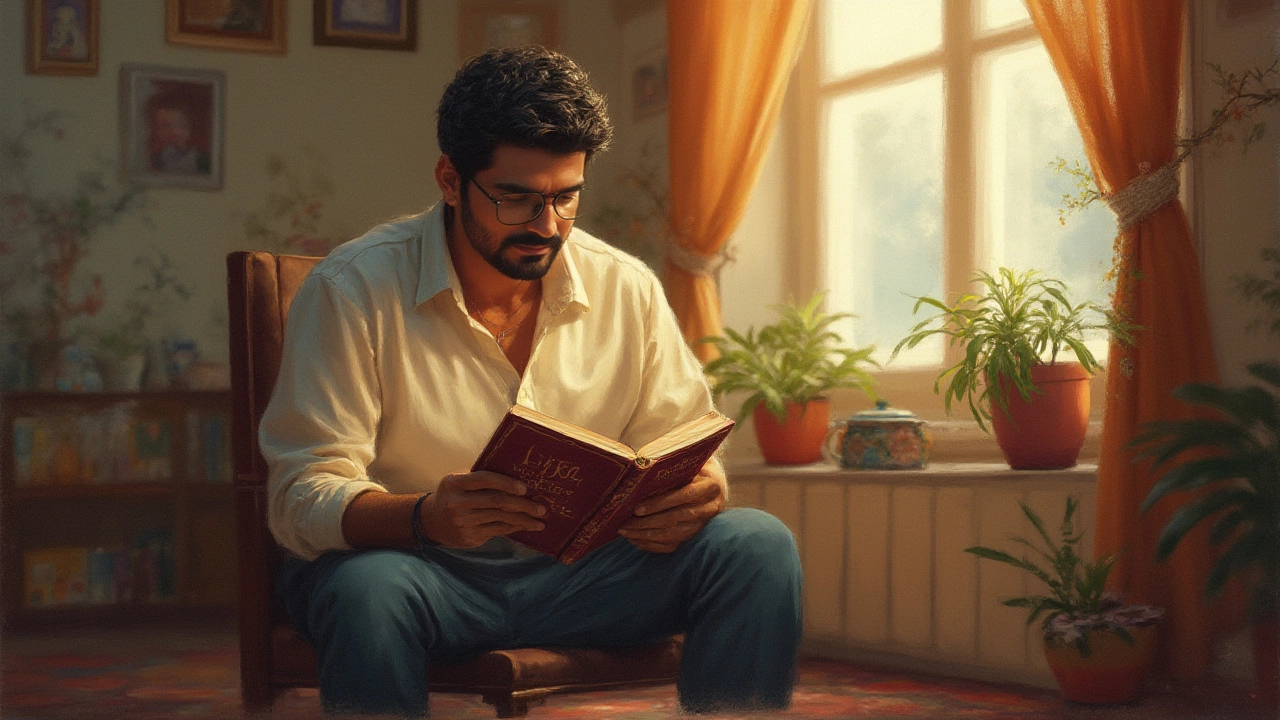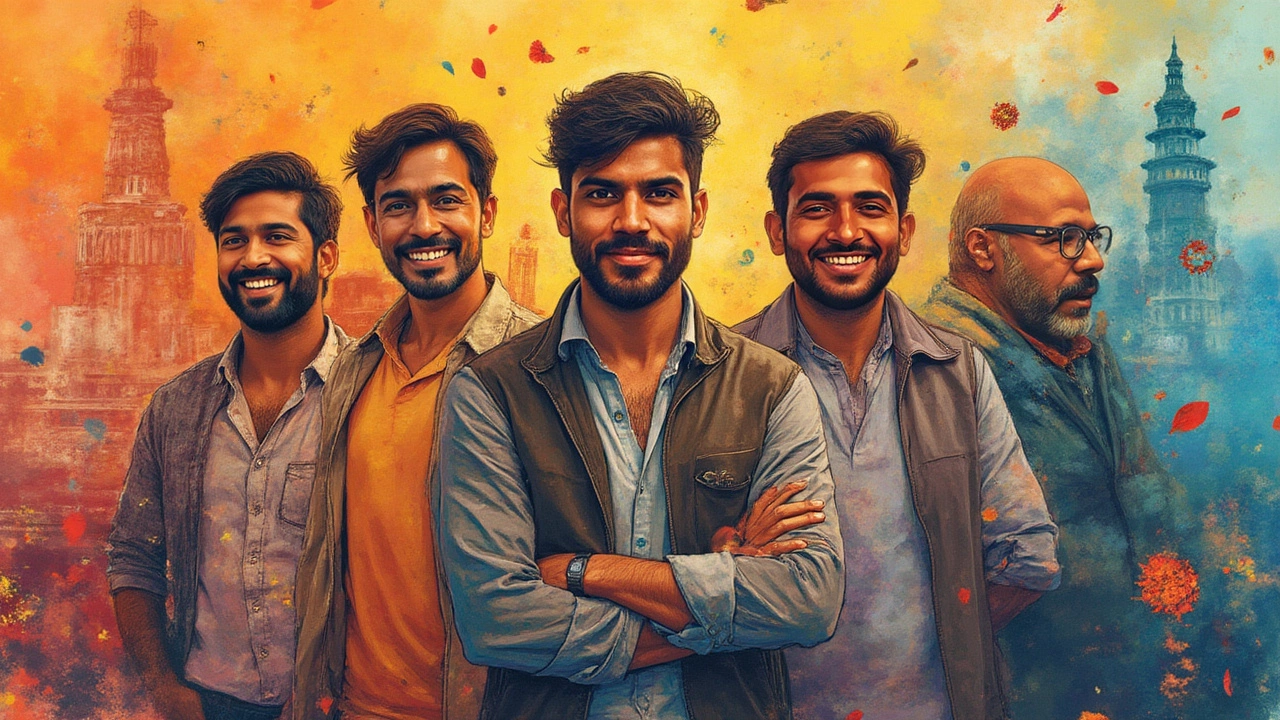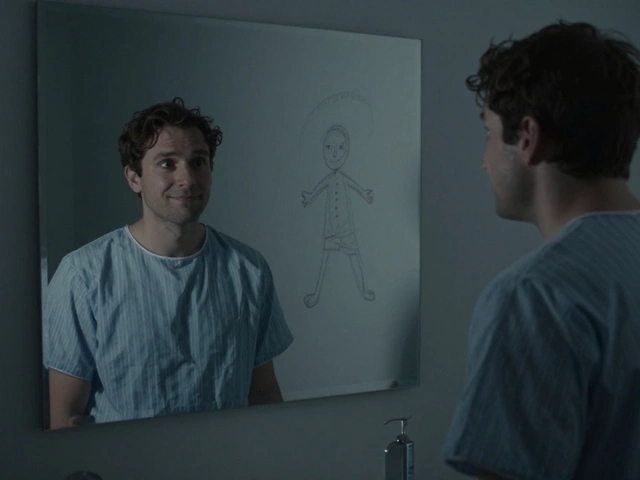
Why is there a single word for almost everything? Turns out, language has always had a thing for sticking a label on everyone. When it comes to a man who's never tied the knot, most people reach for a familiar word—bachelor. But what does that label really mean? It’s not just about single guys living wild. The history, the changing social scene, and even some stereotypes all simmer under that simple word. Let’s pull back the covers and see what being an 'unmarried man' actually says about someone now, and what stories used to swirl around bachelorhood.
Where the Word 'Bachelor' Comes From
Bachelor isn’t fresh from the dating app age—it’s a word that’s been camping out in English for nearly 800 years. People started tossing it around in the 14th century, not for party animals but for young guys who hadn’t snagged knighthood yet. You read that right: a bachelor was originally just a junior knight, not a guy living solo with a fridge full of beer and takeaway boxes.
Move forward to medieval universities, and 'baccalaureus' turns up in Latin as a student who had earned a degree but hadn’t hit professor level. Academia and social status used to go hand-in-hand, so single young men earned this label partly because they hadn’t achieved the “rank” of marriage. By the 18th century, bachelor just meant a guy who never married, and this is where things got interesting. The word started picking up a little cultural baggage—think bachelor pads of the 60s, or Shakespeare’s young single men dancing at masquerade balls.
Look around the world, and no other language quite matches the spin English puts on bachelor. In France, they might say "célibataire," but that covers any unmarried adult, men or women. In Japan, the word "dokushin" also wraps both genders. It’s the English-speaking world that fixed the word 'bachelor' squarely onto men.
Australia, where I’m writing this, sticks with the British version, 'bachelor.' Though Aussies also love nicknames, like calling a lifelong bachelor a "confirmed bachelor." It’s still not common to hear bachelor used for a woman—unless we’re talking about a "bachelorette," which really only caught on in the last hundred years. Before that, being an unmarried woman just got you called a "spinster." (Talk about unfair, right?)
Some cultures add their own flavor. In Russia, the word 'kholostyak' means an unmarried man, and TV even borrowed it for Russian versions of dating shows. But even there, bachelorhood doesn’t always have the playboy undertones found in Western pop culture.
If you think everyone uses the term with a smirk, think again. In some Asian cultures, being forever single doesn’t carry the same punchline. In India, the word 'bachelor' gets tossed around for any single man—no wild parties required. Sometimes it’s even a compliment if he’s focusing on his career, with family or society cheering him on. But traditions are shifting fast.
What Society Really Thinks About Never-Married Men
Whether you call him a bachelor, a single guy, or just say he’s “never-married,” people have a lot of opinions about men who don’t have a wedding band. For decades, stereotypes poured in from movies, books, and gossip. Some people look at bachelors and see freedom—a man doing what he wants, when he wants, no strings, no diapers to change. Think of movie stars like George Clooney, who wore the 'eligible bachelor' badge for years before he decided to settle down.
But it hasn’t always been this glamorous. For most of history, being single into middle age could mean pity, whispers that something was “off,” or worse, full-on suspicion. In Victorian England, spinsters were shamed, but single men didn’t escape judgment either. They could be painted as selfish, immature, or unable to “hold down” a relationship. American sitcoms, like endless reruns of “Friends” and “Seinfeld,” churned out every trope in the bachelor playbook—man-babies dodging commitment, guys obsessed with sports and takeouts, or, at its lowest, the ‘creepy’ forever-single uncle at family parties.
Statistics tell a different story now. The 2021 Australian Bureau of Statistics census showed nearly a third of men over 30 had never married. Similar numbers are popping up all over Western countries. A report from Pew Research Center in the US found that the share of never-married adults keeps ticking up—particularly among men under 40. Why the shift?
People are putting off marriage or skipping it altogether to chase careers, travel, or just wait for the right partner (or the right moment). Social stigma isn’t as loud as it once was, though you’ll still get the odd head-tilt from older relatives or at weddings. The internet changed the single man’s image from lonely outsider to world-traveling digital nomad, creative, or entrepreneur.
Science even wades in with unexpected angles. A study from Stanford University found that married men tend to live longer and report lower stress, but the gap is shrinking every year as singles build stronger friend groups and healthier routines. Meanwhile, German sociologist Dr. Michael Singleton tracked another trend: never-married men report higher life satisfaction than you’d think, especially if their status is by choice. Forget the stereotype—sometimes, being a bachelor is just what works.
There’s no single “correct” answer to what society thinks about never-married men. Perceptions depend on age, culture, media, and even city. Talk to mates in Sydney and you’ll hear a different take from guys in rural Queensland or folks in rural England. Family still matters in Australia, but being single past your twenties isn’t a scandal anymore—if anyone cares, they usually keep it to themselves.

Modern Myths and Misconceptions About Bachelors
Ever noticed how many stories start spinning when you say you’ve never been married? There’s no shortage of wild ideas about the bachelor life. First up, the myth that an older unmarried man must be a playboy. The reality: a majority of bachelors, especially as they get older, aren’t out chasing dates every night. Lots are just focused on their work, travel, friends, or hobbies—think of the guy who’d rather spend Saturdays in the surf or geeking out over a passion project.
Another classic myth: bachelors are lonely. The stereotype is so stubborn it shows up in jokes, memes, even commercials about ready meals. But new data argues back. A 2023 University of Melbourne survey found unattached men in their thirties to fifties reported similar levels of happiness and social activity as their married friends. Having close mates, fulfilling work, pets, or a strong community connection does a lot to fill any so-called “gap.” In fact, plenty of married men envy their single friends’ freedom to move cities, change careers, or pick up wild new hobbies without a family schedule to juggle.
People also assume bachelors are commitment-phobic or immature. Pop culture builds this up—characters like Joey in Friends or endless movies where the hero has to “finally grow up.” But every person has their own reasons. Some men just don’t see marriage as a life goal, or simply haven’t met someone they click with deeply. Others put relationships on hold for study, business, or travel, with no drama in the decision.
Another persistent myth: bachelors are selfish. This does a disservice to single men involved with housemates, family, and community. Loads of bachelors spend weekends volunteering, supporting aging relatives, or mentoring kids. People’s priorities aren’t stamped by marital status.
A final one: being a bachelor is a permanent condition. Ask around, and you’ll find stories of men marrying for the first time in their forties, fifties, even sixties. The average age for first marriage in Australia climbed to 32 for men in 2024—up from just 26 in the 1980s. Plenty of guys are simply waiting for the right circumstances, not writing off marriage forever.
If you’re navigating bachelorhood and sick of the questions, here’s a handful of tips. Decide what you want from life, not what you think you “should” want. Build strong friendships and invest in interests—studies show these do more for lifelong health and happiness than relationship status. Whether you’re looking to settle down or enjoy singledom to the max, no single story defines all bachelors.
What Do You Call a Man Who Has Never Been Married—And Why Does It Matter?
So, if you want that clear answer—what do you call a man who’s never said “I do”? The word is still bachelor, at least in English. Official forms, census records, and dictionaries stick with it. But there’s more to the story than the label.
Language shapes reality, but it can also trap us in tired scripts. When you call someone a bachelor, do you mean carefree, unlucky, mysterious, or just too busy? Chances are, you’re using a word loaded with your own take on the world. That’s why the word itself matters less than what comes next. Do you box someone in, or let them write their own story?
It’s interesting to notice that for women, the vocabulary is loaded with even more bias—rarely is a never-married woman described as “bachelorette” outside of TV. Default labels often skew negative: spinster, old maid, cat lady. There’s a reason discussions around bachelorhood sometimes slide into bigger debates about gender and stereotypes. Each culture sets its own rules, but the trend lines are heading toward freedom to define yourself beyond a single word.
If you meet a guy and find out he’s never married, don’t assume you know his deal. Maybe he’s Laser-focused on work, maybe he’s an adventurer, or just plain content with his slice of the world. Maybe he’ll get married down the track—or maybe not. Either way, modern life has made space for bachelors to live fully formed lives, no matter what path they’re on.
For anyone reading this who has never married (or knows someone who hasn’t), don’t get stuck wrestling with what society might say. The important stuff? Your own happiness, the quality of your relationships (of any kind), and the adventures you choose to chase. The label 'bachelor' is just a tag—what you build on top is totally yours to decide.


